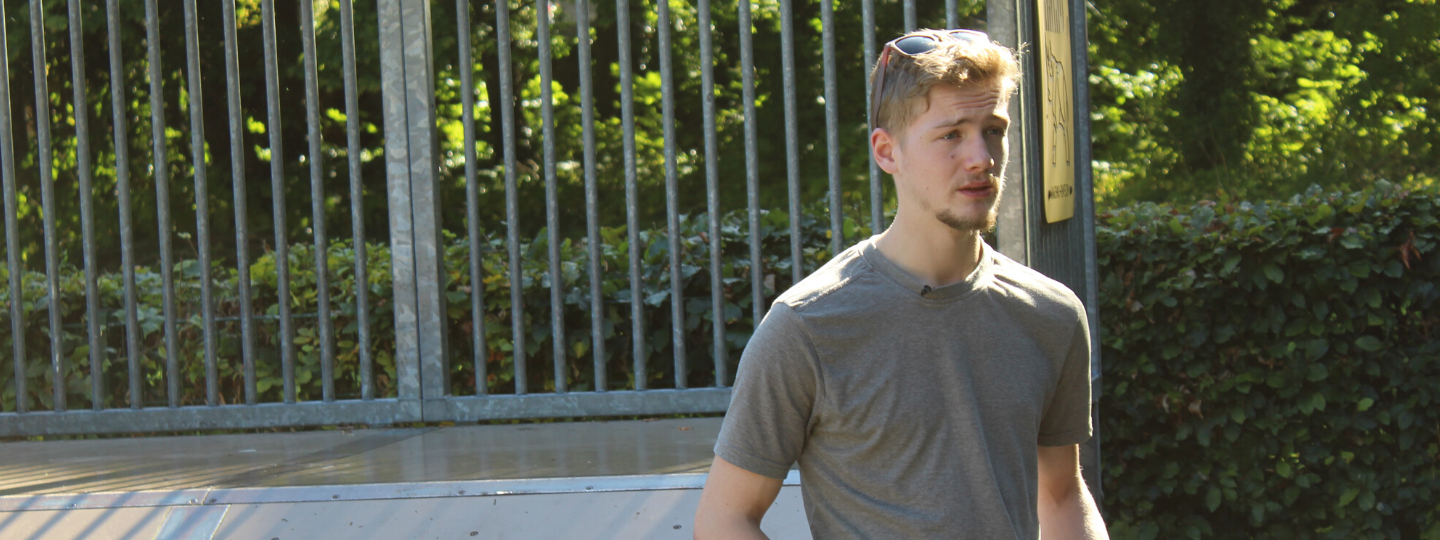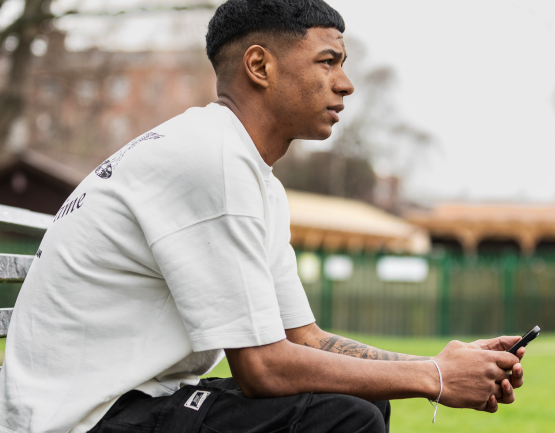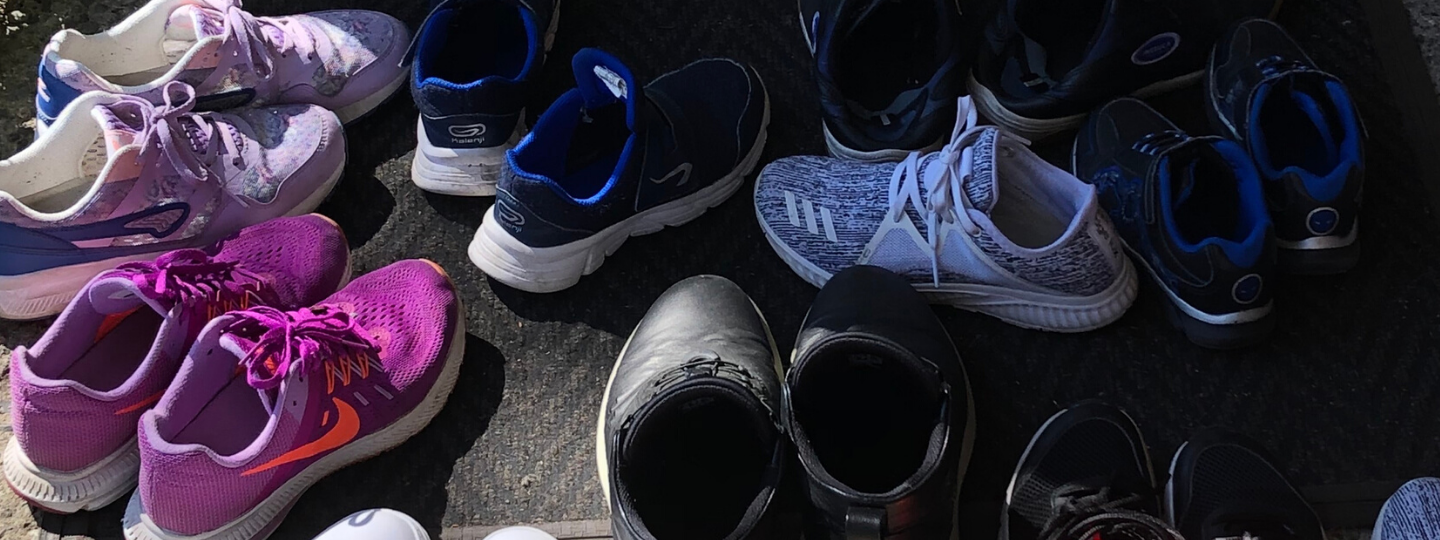Managing anxiety
Managing anxiety
Anxiety is a sign something needs your attention. It could be telling you that you may be in danger or something is risky.

Feeling anxious is a normal and natural occurrence for each and every one of us.
What is anxiety?
Anxiety is a sign something needs our attention. It can be protective, letting us know there may be danger or something is risky.
It can also be a positive thing. Feeling anxious about something like an exam or a driving test can be a motivator to study and practice. But sometimes, feelings of anxiety can become overwhelming and interfere with our daily lives.
Anxiety is something we all feel. It is an experience that we have and not a part of who we are. New or challenging situations, like meeting new people and speaking in public can cause us to feel anxious.
Physical feelings of anxiety
Feelings of anxiety often come with sensations in your body. They can be:
- Feeling hot
- Heart beating faster
- Becoming aware of the heart beating or feeling it ringing in your ears
- Breathing changing – becoming more shallow and faster
- Tight feeling in the chest, or discomfort in the chest area
- Feeling sweaty or flushed
- Sick feeling in your stomach, such as butterflies
- Churning or nausea or feeling an urgency to use the toilet
- Headaches and tension.
People often describe sensing something is ‘off’ or feeling uneasy, or are worried that something bad might happen. These are just some examples. Everyone is different and can experience anxiety in different ways.
While these body sensations are uncomfortable they are not dangerous and can be managed.
Sometimes we can become very focused on the physical sensations of anxiety, but this can add to the problem. We can worry about the body sensations which then makes us feel more anxious.
Anxiety and self-esteem
When we’re experiencing feelings of anxiety it can affect how we think and talk to ourselves.
We can begin to tell ourselves we’re unable to deal or cope with certain situations, or that we’re not good enough. We have a million ways to criticise ourselves and it is not helpful. We talk to ourselves in ways that we would never talk to someone one else.
Negative thinking patterns
When we’re feeling very anxious, we may start to view things as problems, or problems waiting to happen. The more we look for potential problems the more we see them.
It’s easy then to start imagining all sorts of negative scenarios. For example, someone could have a funny expression as they walk past you. We can start jumping to conclusions from there about the negative things they were thinking about us. In reality, they may have had other things going on in their mind.
The truth is we never really know what anyone else is thinking unless they tell us. The unfortunate reality is, if we look for problems we will find them.
Recognise your negative thinking patterns and try to talk to yourself with some compassion. Stop and check, are you giving yourself a hard time?
Try to be kind to yourself and talk to yourself in a supportive way, as you would to others.
Reasons you might feel anxious
Sometimes when we experience feelings of anxiety it can seem as if it comes out of nowhere. But, it’s often a build-up of a few things over time.
You could have other stuff going on, like a state exam, a new job, or the end of a relationship (always potentially stressful/anxiety-provoking). The feelings might be even harder to manage in this case.
It can be helpful to have someone you can talk to about your anxiety. Jigsaw offers 1:1 text-based Live Chats where you can talk to a member of our team about how you’re feeling.
Below are some of the things that young people coming to Jigsaw have said makes them feel anxious.
- Family relationships and conflicts
Our families can be a great support. But, problems in our relationships with them can contribute to feelings of distress. Conflict with parents, siblings, or their relationships with each other can cause real stress and anxiety.
- Loss and grief
When we experience bereavement we can go through a whirlwind of emotions. It can also result in anxiety about the possibility of losing someone else in our lives.
- Keeping up with friends
At school or college with people the same age, it can be easy to compare yourself. You can notice the differences between yourself and others. This is not necessarily a bad thing. But, developing a habit of it can be the start of self-criticism which can be unhelpful and cause anxiety.
Remember you are unique. Learn to love what makes you ‘you’ and what makes you different. If we were all the same life would be very boring.
Know your own strengths and ways you would like to develop in the future. These are all part of your own unique self.
- Taking on responsibilities
Having too much responsibility while we’re young can be overwhelming. This can happen if someone was ill in your family, or a parent or older sibling experienced an addiction. Or also if you come from a big family with lots of younger siblings.
On the other hand, not being given enough responsibility prevents us learning skills we need to develop and grow. Then we can find ourselves stressed out by things other people seem to find easy.
We may not be prepared for transitions in our life, which can cause feelings of anxiety. These could be events like starting secondary school, moving to college, beginning our working lives, or moving out of home.
Three helpful exercises to manage anxiety
How to manage anxiety
Acceptance
We reduce the impact anxiety has if we accept some discomfort as natural, and even necessary, in our lives.
If we start learning and listening to signals that anxiety brings, it can help us take action. Sometimes getting anxious lets us work through the feelings of discomfort and learn to be OK with it.
We can look at anxiety as a way to bring our attention to something. Then it gives an opportunity to assess what it is that’s causing us to feel like this.
Ask yourself:
- What is this about?
- Is it because it is all new?
- Is it something you can overcome?
We will all experience anxiety and difficult situations in our lives. This is part of the experience of being human. Trying to eliminate anxiety from our lives or achieve ‘zero anxiety’ can actually make us feel more anxious because it’s an impossible goal!
Try not to develop a habit of avoidance
When we’re getting anxious a lot, it’s only natural to do things, or avoid doing things, so these feelings won’t come. It can seem like an obvious solution and may work in the short term. But it can easily become a habit of avoidance.
This then prevents us from feeling free in our life. It interferes with us being able to be who we want to be and do what we want to do. It also prevents us from learning to face discomfort when we need to and to overcome anxiety.
Being OK with anxiety
There are situations in our lives that will cause us to feel discomfort. Times of transition, like starting a new school, or job, going to college or moving out of home are some examples.
It’s perfectly natural to feel anxious at these times and it’s important to remember most people would feel the same. Often, we don’t recognise this though, because of our own worry.

Get Support
We can support you in a number of ways:


